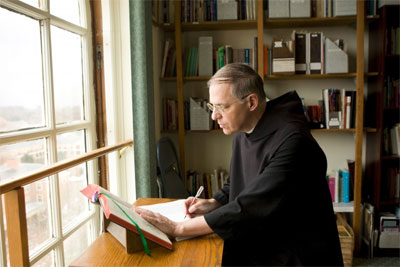Most everything we say about parish conventions is a guess based on whatever inputs we have but my guess is that 9 in 10 parishes this Good Friday will not sing or say the Improperia/Reproaches (“My people, what have I done to you”). There are a number of puzzles in my own mind concerning why this is so. They are just an integral to the Roman Rite as any part of the liturgical season and yet today they are mostly entirely neglected so far as I can tell.
Oddly, this is not because they are absent in the Missal. In fact, they are very much present in the current Missal, not just as a text but as notated music, and not in the appendix where you find other music but right there as part of the Good Friday liturgy. Their neglect might be due to the fact that they appear in the Missal but, so far as I know, they are mostly absent from the Missalettes that the choir uses. This means that they are available to the priest but this priest is not the one doing the singing. They are not available for the choir, which is doing the singing. Hence, they are not said or sung.
Why are they in the Missal? This is another oddity. Mostly the Missal contains the parts for the celebrant and not the choir. This is why, we are told, that the offertory propers are not the Missal. But if we applied that rule consistently, the Reproaches wouldn’t be in there either. Apparently, however, in the pre-Tridentine usage, matters were different. The priest and servers would in fact sing this portion of the liturgy in procession. The old Trent Missal did not make a distinction between the priest and choir parts, and perhaps the Reproaches were somehow grandfathered in to the current Missal. Maybe someone can shed light on this puzzle.
Regardless, it hardly matters because most parishes just pretend they do not exist at all, and this is very sad. The text gives new meaning to the word drama, for it so clearly lays the blame on the evil of the crucifixion on our owns sins and our own faithlessness. The narrative is historical but the theology behind the narrative is deeply personal and present. It strikes you as no other texts.
Aristotle Esguerra as taken the current Missal texts in English and produced two beautiful editions:
1985 Sacramentary (lacks Greek and deviates from the traditional order of choral declamation)
and
1985 Sacramentary with Greek and traditional choir divisions restored
In my own parish, we’ve usually sung Victoria’s setting of the text.
This is a ten-year old practice. This year, for the first time, we are going to the source and singing the texts straight from the Graduale Romanum. We are very excited about this.


